Annual Special: Best Books of 2023
Tolstoy, Tom Holland, Marguerite Yourcenar, Henryk Sienkewicz, Carlo Rovelli, Boethius, Lucretius and others
I have come to think that great men are characterised precisely by the extreme position which they take, and that their heroism consists in holding to that extremity throughout their lives.
They are our poles, or our antipodes.
~ from Marguerite Yourcenar’s Memoirs of Hadrian
One of my favourite public personalities is Tom Holland. The historian of ancient Rome, of course, not the actor. (😂) Tom Holland’s book called Dominion with an intriguing subtitle How the Christian Revolution Remade the World is one of the books that I will keep coming back to throughout my life.
It revealed Christianity through a different light to me. It showed me how Christian religion evolved and how much philosophies such as Stoicism, Epicureanism, or the works of Aristotle influenced and became an essential part of the Christian way of thinking.
What’s fascinating is that we don’t even recognise today how much our outlook on virtues such as justice, mercy, kindness and love was influenced by Christian religion and its philosophy. Holland, for example, who describes himself as an atheist (like myself) says that throughout his life he was fascinated by the Ancient Rome, but more he studied it, more he realised how foreign was their way of looking at life.
The idea of ‘mercy’ for example, or compassion to the weak was incomprehensible to an ancient roman. “What do you mean when you say I’ve to be kind to someone who’s weak? Why?” - would reply an ancient roman soldier.
I. My most gifted book of 2023
Not long after finishing Tom Holland’s masterpiece I read Marguerite Yourcenar’s brilliant ‘Memoirs of Hadrian’. Oh my god, what a chef d’oeuvre!, what a work, what a prose! Incredible!
With the gods gone, and Christ not yet come, there was a unique moment, from Cicero to Marcus Aurelius, when man stood alone.
During the last weeks of his life, the Emperor Hadrian writes to his successor Marcus Aurelius about the lessons he learnt in life. Throughout the pages of this book you feel the imminence of death coming closer and closer to Hadrian and you feel that he wants to tell you the truth before his eyes will shut down forever.
What’s it like to be alone and godless in the face of death? Not having Christian religion to rely on, and knowing that Zeus and Athena are also equally dead. This is what Yourcenar masterfully explores and once again it’s another book that will follow me forever.
Digression: The Italian cloth designer Brunello Cucinelli has built his entire philosophy around this book.
II.
“But I think happiness springs from another source, a far deeper one that doesn't depend on will because it comes from love.”
I was stunned by Memoirs of Hadrian and wished that it never ended. The first thing I did, when I finished reading it, was to look for books with similar ideas and style.
I remembered that my father told me about a Polish Nobel Prize winner Henryk Sienkewicz and his novel called - Quo Vadis
Luckily, I had a copy on my shelf. It’s a love story between a Roman general Vinicius who falls in love with a Christian girl Lygia during the reign of emperor Nero. Christians were prosecuted by Nero and were thought to be drinking children’s blood and poisoning the wells.
Vinicius falls in love with the beauty of Lygia, but his love was different from the love you and I are thinking of. He loves her as an object, object of possession, as a Roman. He doesn’t have the concept of a soul, of loving someone not on the ‘material’ level, but on a spiritual level.
Sienkewicz’s novel feels like a sequel to Yourcenar’s Memoirs of Hadrian. The latter explores what was it like to live in the world when gods are dead, while the former tells us what’s it like when God is born.
III.
I guess this is the right time to tell you about another book that I’ve read in 2023 that I’ll keep coming back to. This book is Lucretius’s On Nature of Things.
This book was considered lost for about 1600 years until it was found accidentally by a Florentine book-hunter Poggio Bracciolini in one of the French monasteries. On the Nature of Things is a philosophical poem written in the first century BC by a philosopher and poet Lucretius.
On the one hand it’s a scientific work that explores the Nature of Things but on the other hand it aims to attack religious fundamentalism and narrow-mindedness.
“All religions are equally sublime to the ignorant, useful to the politician, and ridiculous to the philosopher.”
~ Lucretius, On the Nature of Things
This quote was written before the spread of monotheistic religions and shows us that dogmatic fanaticism, surrender of reason to superstition was and is a perennial vice of humanity.
Sienkewicz, in fact, tells us about this in his novel. When Vinicius thinks he is a Christian, Lygia tells him that the true belief cannot be dogmatic, but must come from reason itself.
In some sense one might say that if Hadrian ever read Lucretius’s book, he could have drawn inspiration from it whilst on the deathbed.
IV.
One of my favourite Waterstones bookshops is in Liverpool. I don’t know who exactly curates their philosophy section, but its selection is absolutely exceptional. It was there where I discovered Boethius’s The Consolations of Philosophy.
Boethius was a rich Roman senator who led a prosperous life until he was falsely accused of treason and thrown into prison.
In one day, he lost everything. His family, home, wealth, reputation. Everything. In his prison cell, he wrote this book, in which he is visited by the goddess of philosophy, who comes to his assistance.
It’s worth saying that if Yourcenar’s book was a fictional story, Boethius’s work, however, was written in a real prison cell, weeks before he was executed. In this difficult moment of life, Boethius reached for help to ancient philosophers as well as to Christian ideas. He combines them beautifully together and everyone who is going through hard times in their life can find strength and inspiration in this masterpiece.
You can watch my full review here.
V.
Exile and genius are synonymous words for a great Russian writer. Nabokov, Brodsky, Bunin, Solzhenitsyn and others suffered from this fate. Tolstoy was never exiled, but he was excommunicated by the Russian Orthodox Church for his Christian mysticism. Tolstoy believed that you don’t need priests to experience the divine. So, when he died, Russian church refused him the burial, instead, Tolstoy’s wife went to Armenian church where Armenians granted the giant of the Russian literature his final rest.
Tolstoy’s Life is a non-fictional work where the author of War & Peace explore the meaning and purpose of life. It had a profound impact on the way I look at science and religion. Also, on the way I approach knowledge and reading.
You can listen to this episode of Genius & Ink podcast where I explore this book in a more detail.
VI.
This is such an enjoyable book about books. It’s perhaps the most enjoyable book about books I’ve read! I’ve read many such books - trust me.
A wonderful gift to your bookish friend for Christmas, New Year, or for a birthday. Martin Latham tells us the story of book sellers, book binders, book hunters, book lovers, book burners or in other words anyone who loved or hated books.
I’ve reviewed this book right here. It’s one of the most popular posts of mine this year.
MISC
W.G. Sebald on Memory, Carlo Rovelli on Mysteries of Science, Rick Rubin on Creativity and more
There are some other great books that I enjoyed this year. W.G. Sebald’s Austerlitz is a wonderful book that explores memory, identity and time. This year I was also obsessed about quantum physics and its mysteries. My inadvertent teacher was Carlo Rovelli with his Seven Lessons in Physics, Helgoland, Anaximander and Reality is Not What It Seems.
The great music producer Rick Rubin wrote a book on creativity which I found easy to read and full of practical tips on how to boost your creative powers.
I also enjoyed the sublime biography of Nietzsche by Guy de Portalès called Nietzsche in Italy. Here’s the video review I’ve made about it.
I cannot say I liked Wolfram Eilenberger’s book The Visionaires about Simone de Beuavoir, Hannah Arendt, Simone Weil and Ayn Rand. Mainly because I think only Simone Weil and Hannah Arendt deserve to be called visionaries.
Plans for 2024
A small announcement
In 2023, my journaling journey reached its 15th milestone - a decade and a half of sitting down every day to organise my thoughts, express my feelings, and document my experiences in a journal.
I’ve written almost three dozen Moleskine notebooks over this period and assigned a name to each notebook. My current one is called ‘Confide tibimet’ - a Latin phrase for ‘Trust in yourself’.
Most of my entries are about ideas I read in books. I think reading and journaling go together and it’s hard to find a great writer who didn’t keep a journal or some kind of a record of their thoughts.
‘s wonderful Substack newsletter about how different geniuses documented their ideas is proof of this.In 2024, I would like to share this journaling journey with you. However, every journal contains private thoughts that one wouldn’t want to share openly for everyone to see. For this reason, I decided to share journaling tips I accumulated over the years on my Patreon.
Patreon will allow me to write openly about my experiences while maintaining some sort of privacy at the same time.
If you would like to begin your journaling journey in 2024, but don’t know where to start, what to write, or how to stay consistent - consider joining my Patreon.
Hope to see you there!

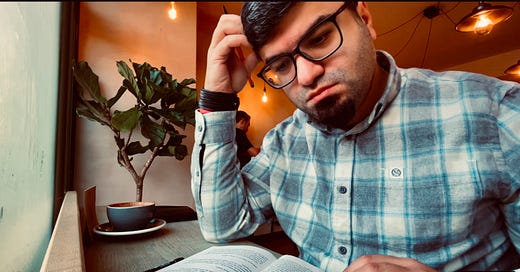




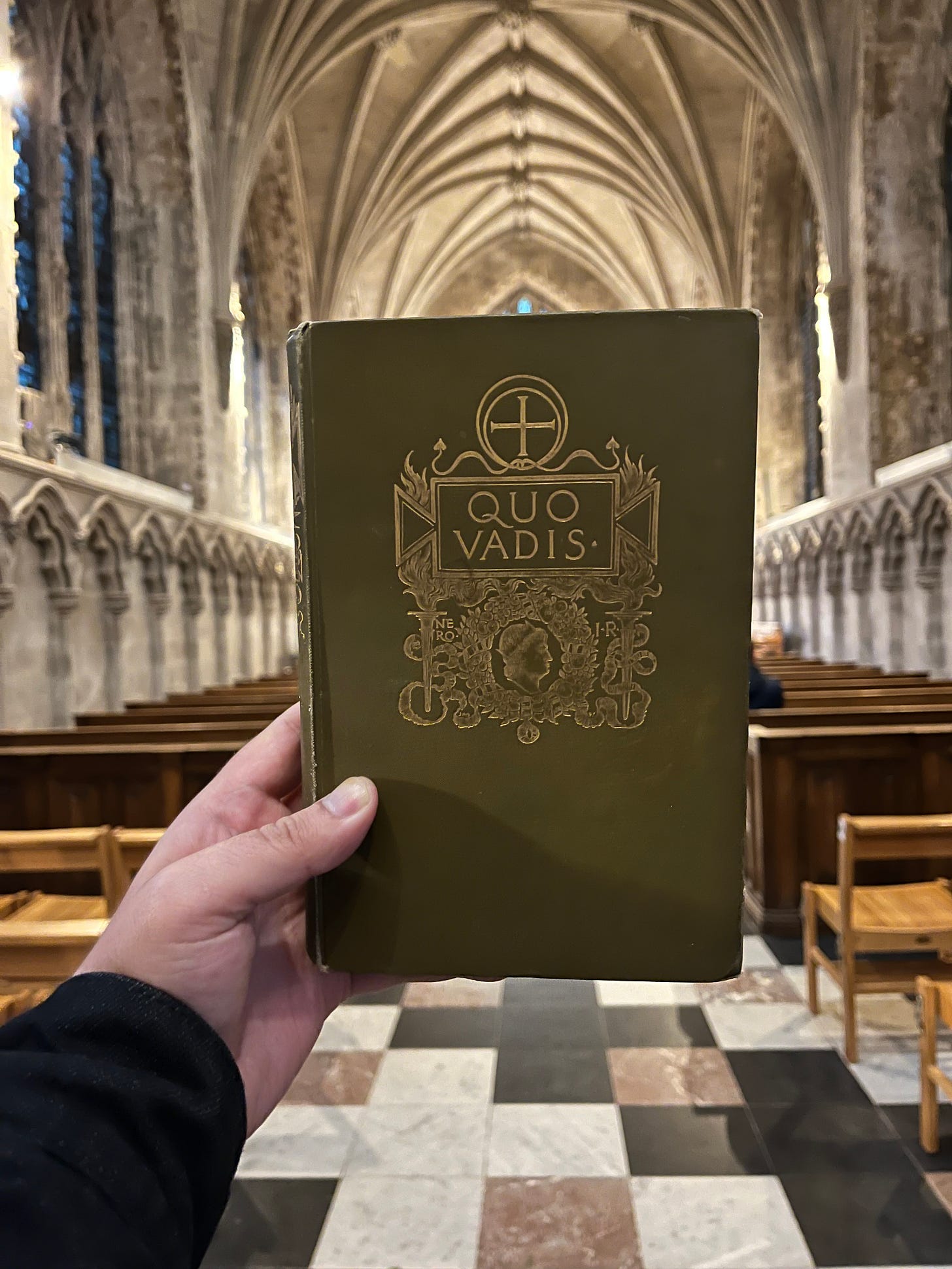
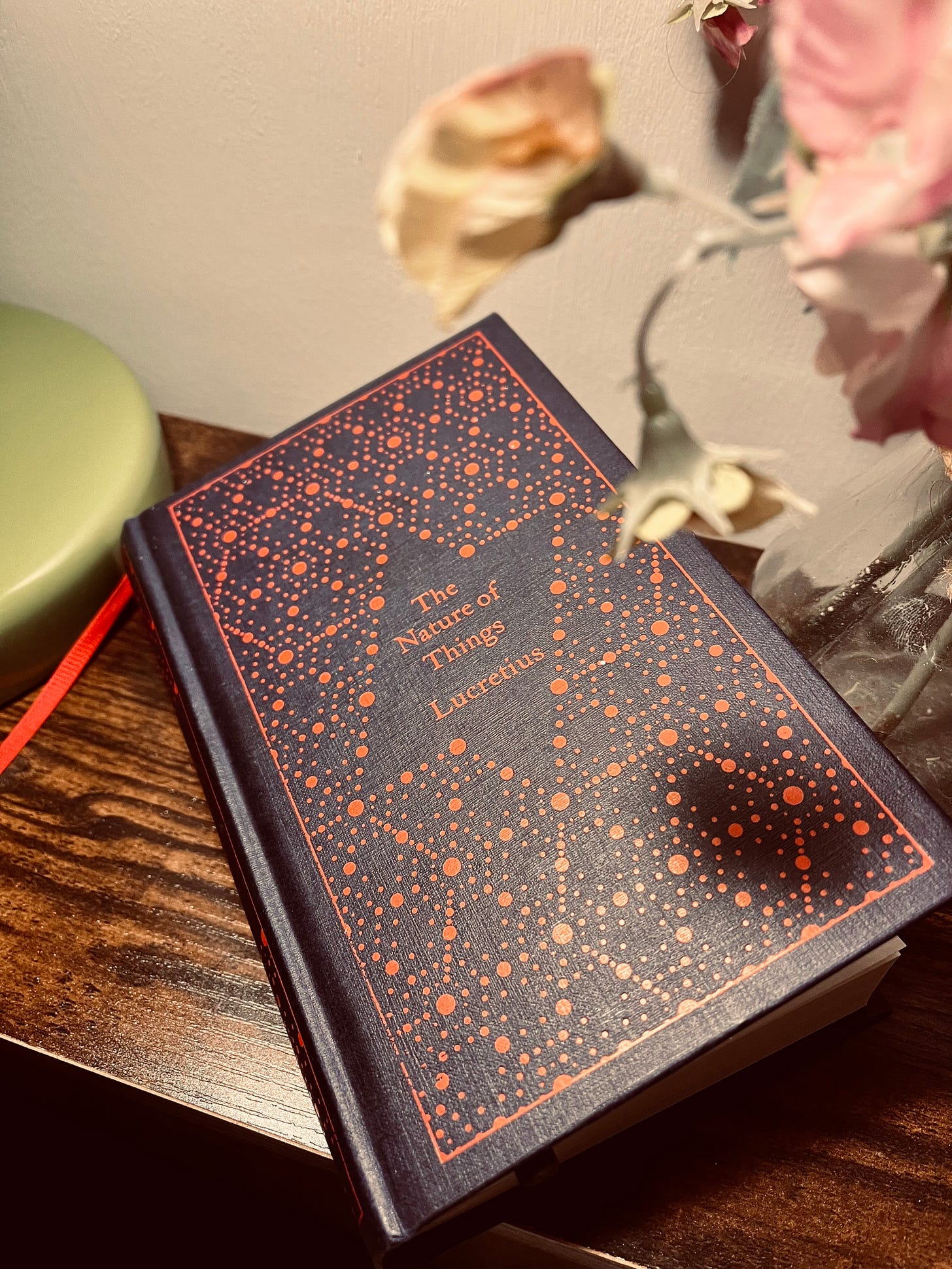
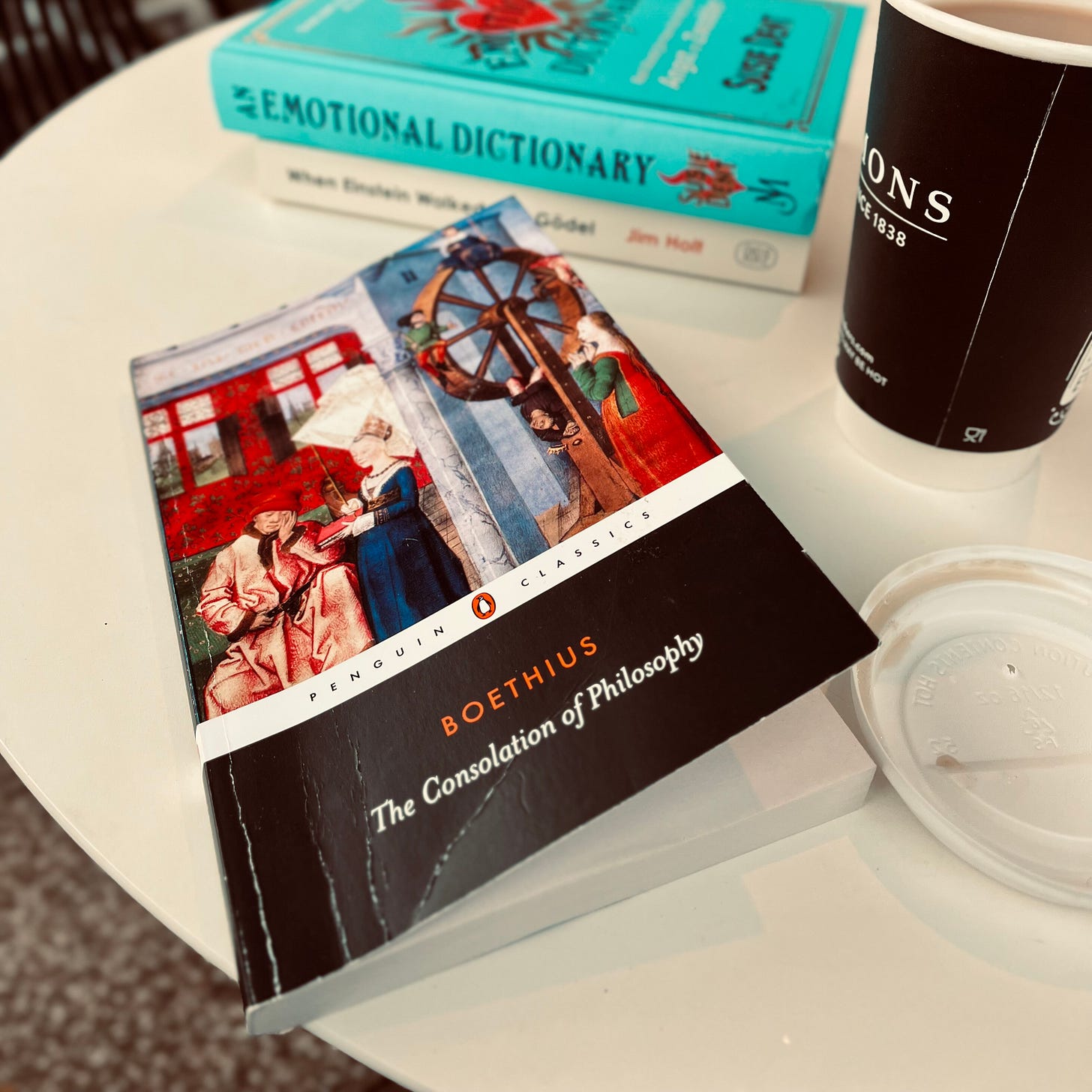
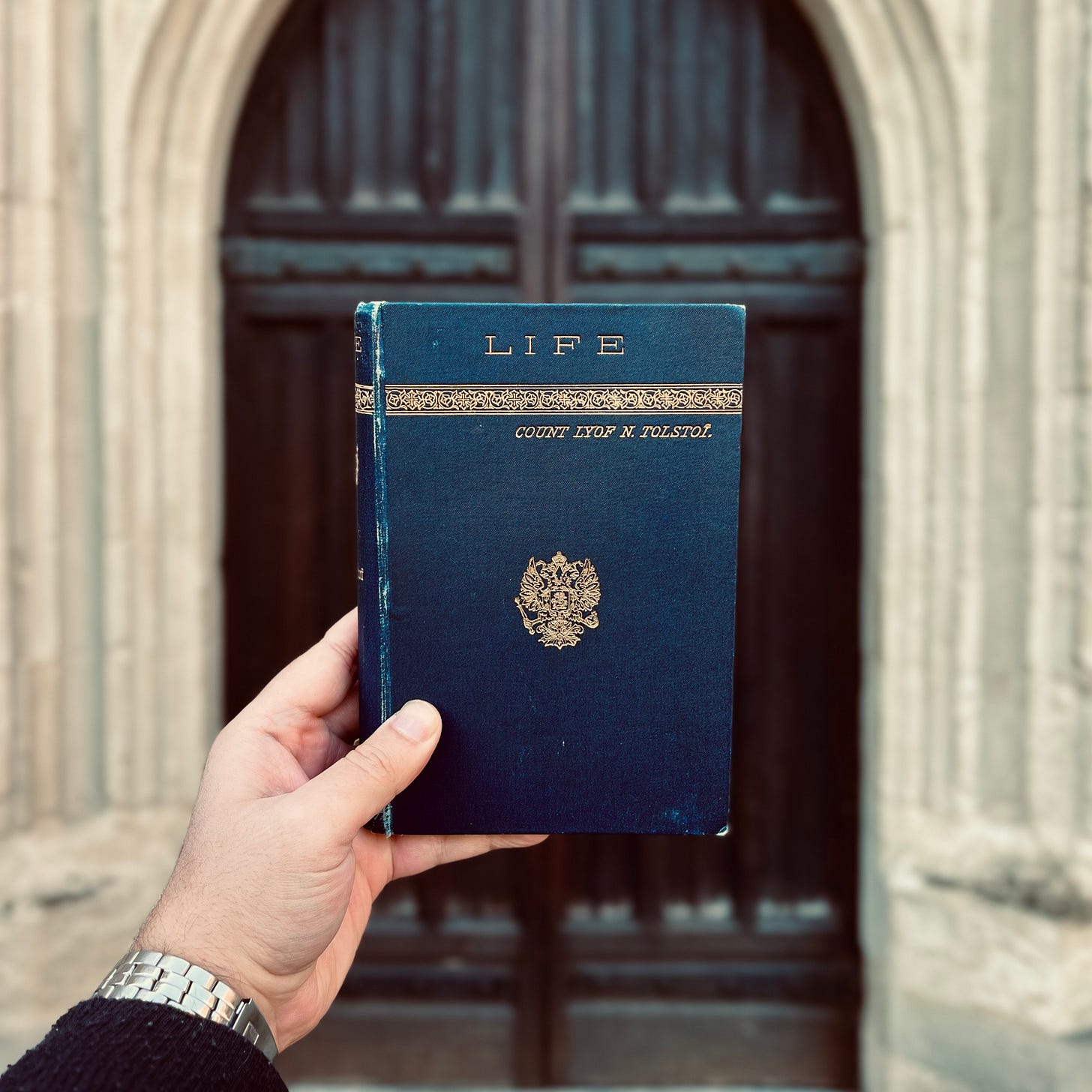
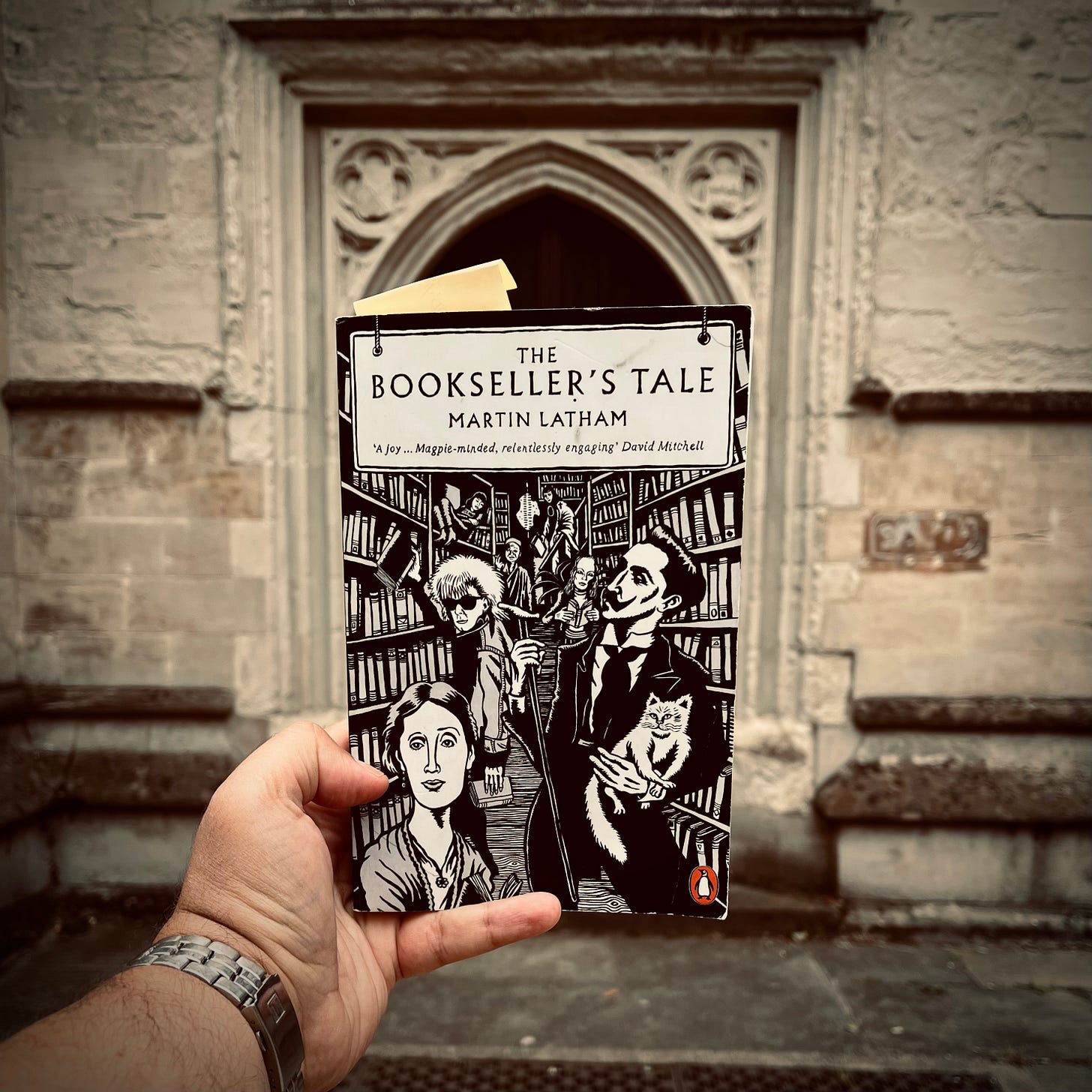
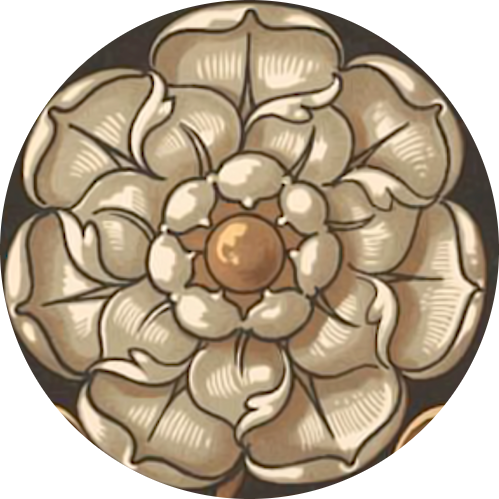


I taught a freshman philosophy course for many years, and I often required two of the books you mention here: Lucretius and the Boethius. Lucretius is too long to tackle in one semester and still do the other readings, so I limited it to the first three books. They always hate it. On the other hand, they insist on doing all five books of the Consolation. It was a joy to be have an excuse every semester to reread those two books.